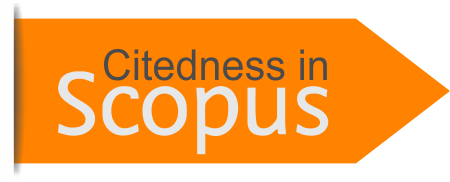RETHINKING “ELECTRONIC AGENT” TERMINOLOGY IN THE LAW ON ELECTRONIC INFORMATION AND TRANSACTION FROM THE PERSPECTIVE OF INDONESIAN LASTGEVING LAW
Abstract
Abstract
The definition of “Electronic Agent” in Law of Electronic Information and Transaction (ITE Law) raised questions from the perspective of Agency Law (in Indonesia known as lastgeving). ITE Law construct that “Electronic Agent” is “a device of an electronic system that is made to do an action on a certain Electronic information automatically which is organized by person.” This construction of saying “Electronic Agent” as a device can be criticized through the perspective of agency law which agent usually refers to legal subject. The doctrine of agent in Indonesia is known as “as an act of giving a power of attorney” or “lastgeving.” Lastgeving is defined as a legal relationship between two legal subjects, where one subject gives his authority to another legal subject to do a certain action on behalf of the principal. This means, in concept, agent is a legal subject (legal entity) and not a legal object (object/device) which is constructed by ITE Law. This article will discuss how the adequacy of “Electronic Agent” terminology is used in the ITE Law from the perspective of Indonesia Lastgeving law. In discussing the issues stated above, this article uses the normative legal studies methodology.
Abstrak
Definisi “Agen Elektronik” dalam Undang-Undang Informasi dan Transaksi Elektronik (UU Elektronik) menimbulkan pertanyaan dari sudut pandang Hukum Keagenan (di Indonesia dikenal sebagai Lastgeving). UU ITE mengkonstruksikan pemahaman “Agen Elektronik” sebagai sebuah “perangkat dari suatu Sistem Elektronik yang dibuat untuk melakukan suatu tindakan terhadap suatu Informasi Elektronik tertentu secara otomatis yang diselenggarakan oleh Orang.” Pengkonstruksian Agen Elektronik sebagai sebuah perangkat ini dapat dikritisi menyimpang dari konsep keagenan pada umumnya yang mengacu sebagai sebuah subjek hukum. Konsep agen atau di Indonesia secara doktrin dikenal sebagai “hukum pemberian kuasa” atau “lastgeving.” Lastgeving didefinisikan sebagai hubungan hukum antara dua orang, dimana sang agen diberikan kepercayaan untuk melakukan suatu hal atas nama sang principal. Yang berarti, agen adalah sebuah subjek hukum (orang) dan bukan objek hukum (barang/perangkat) seperti yang dikonstruksikan oleh UU ITE. Artikel ini akan membahas bagaimana ketepatan penggunaan terminologi “agen elektronik” didalam UU ITE melalui perspektif hukum pemberian kuasa atau lastgeving Indonesia. Dalam mambahas isu tersebut, artikel ini akan menggunakan metode yuridis normatif.
Copyright (c) 2022 Angga Priancha, Ardia Khairunnisa, Tasya Caroline, Gilang Sephia

This work is licensed under a Creative Commons Attribution 4.0 International License.
Authors who publish with this journal agree to the following terms:
- Authors retain copyright and grant the journal right of first publication with the work simultaneously licensed under a Creative Commons Attribution License that allows others to share the work with an acknowledgement of the work's authorship and initial publication in this journal.
- Authors are able to enter into separate, additional contractual arrangements for the non-exclusive distribution of the journal's published version of the work (e.g., post it to an institutional repository or publish it in a book), with an acknowledgement of its initial publication in this journal.
- Authors are permitted and encouraged to post their work online (e.g., in institutional repositories or on their website) prior to and during the submission process, as it can lead to productive exchanges, as well as earlier and greater citation of published work.





















